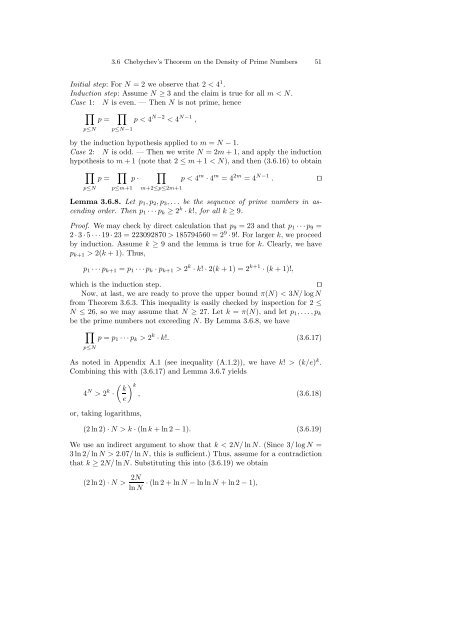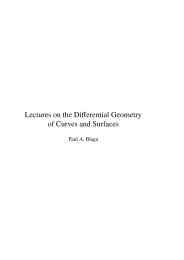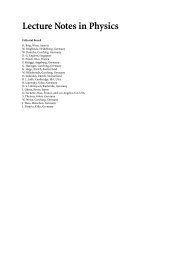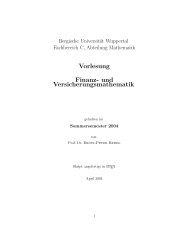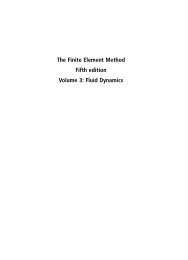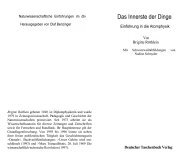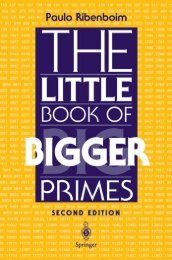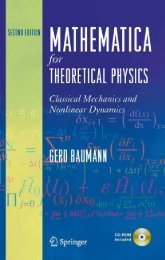Dietzfelbinger M. Primality testing in polynomial time ... - tiera.ru
Dietzfelbinger M. Primality testing in polynomial time ... - tiera.ru
Dietzfelbinger M. Primality testing in polynomial time ... - tiera.ru
You also want an ePaper? Increase the reach of your titles
YUMPU automatically turns print PDFs into web optimized ePapers that Google loves.
3.6 Chebychev’s Theorem on the Density of Prime Numbers 51<br />
Initial step: ForN =2weobservethat2< 41 .<br />
Induction step: Assume N ≥ 3 and the claim is t<strong>ru</strong>e for all m 2 k · k!. (3.6.17)<br />
p≤N<br />
As noted <strong>in</strong> Appendix A.1 (see <strong>in</strong>equality (A.1.2)), we have k! > (k/e) k .<br />
Comb<strong>in</strong><strong>in</strong>g this with (3.6.17) and Lemma 3.6.7 yields<br />
4 N > 2 k � �k k<br />
· , (3.6.18)<br />
e<br />
or, tak<strong>in</strong>g logarithms,<br />
(2 ln 2) · N>k· (ln k +ln2− 1). (3.6.19)<br />
We use an <strong>in</strong>direct argument to show that k2.07/ ln N, this is sufficient.) Thus, assume for a contradiction<br />
that k ≥ 2N/ ln N. Substitut<strong>in</strong>g this <strong>in</strong>to (3.6.19) we obta<strong>in</strong><br />
(2 ln 2) · N> 2N<br />
· (ln 2 + ln N − ln ln N +ln2−1), ln N


